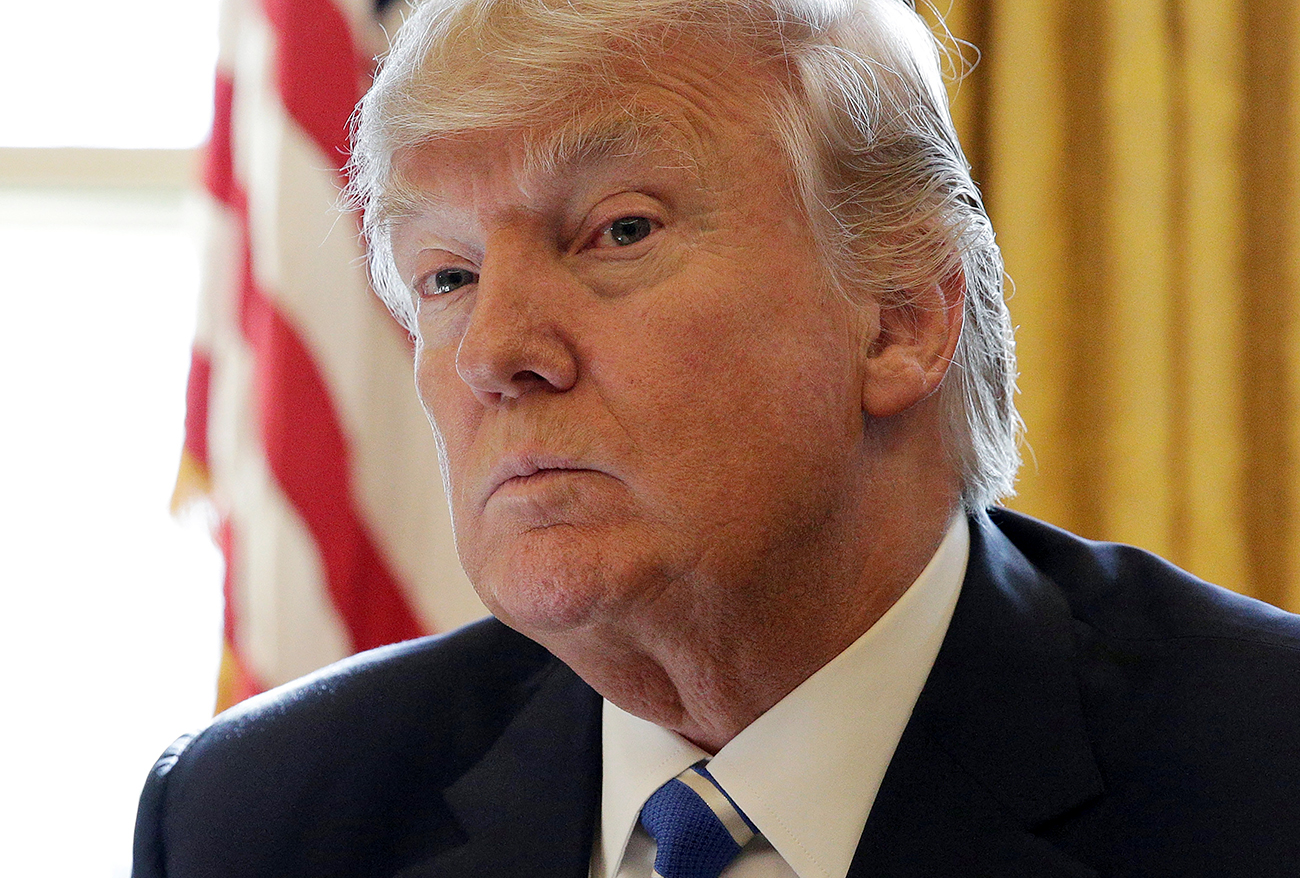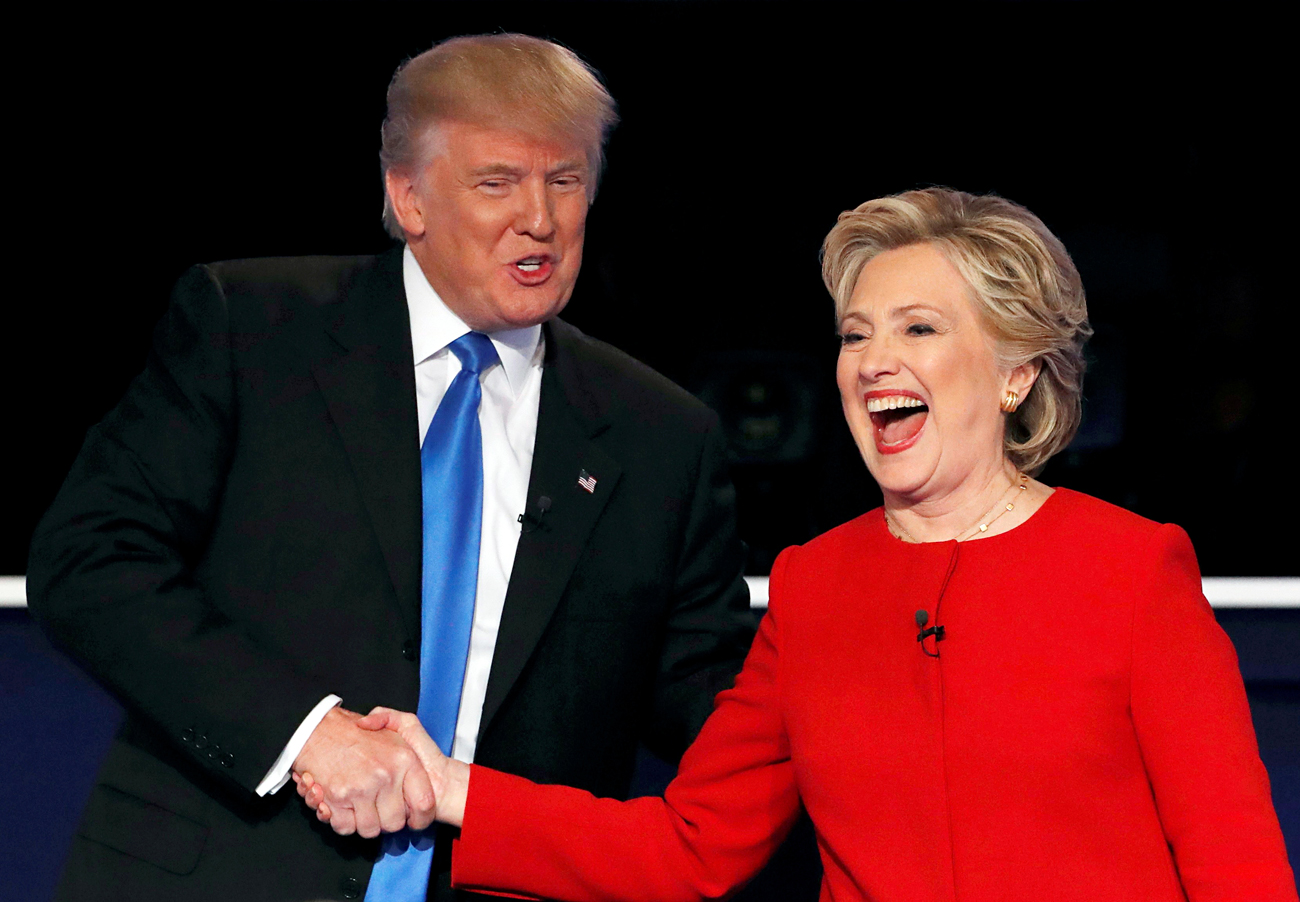Why does Putin need a psychological dossier on Trump?

U.S. President Donald Trump.
ReutersAccording to NBC News TV, the Kremlin has compiled a psychological dossier on President Donald Trump for Vladimir Putin.
The dossier apparently describes the American president as a "risk-taker who can be naive."
"Very serious preparatory work is going on in the Kremlin, including a paper - seven pages - describing a psychological portrait of Trump, especially based on this last two to three months, and the last weeks," former Deputy Foreign Minister Andrei Fedorov told NBC News.
Meanwhile, Kremlin denied commissioning dossier on Trump’s psychological makeup. "The Kremlin did not order a psychological portrait of Trump," Russian Presidential Spokesman Dmitry Peskov told reporters on Feb. 24.
The goal of psychological profiles
"Such profiles are certainly useful," said Sergey Enikolopov, Ph.D (Psychology), associate professor at the neuro- and patho-psychology department at Moscow State University, reported Gazeta.ru. "When you meet a person, you want to know something about them - in order not to offend them and, in dealings with them, to have them disposed favorably towards you rather than against you."
"All negotiations are based on each of the sides knowing something about the other side," Dr. Enikolopov said. "Prior to any meeting - not only in the Kremlin, but in the White House or any other place where talks may take place - attempts are made to create a certain psychological profile of the future interlocutor in order to understand the person's relations with others, to suggest whether the person takes things on trust or not. These profiles are based on press articles about the person and their own texts, speeches and biography. They are the most trivial characteristics that say: this person is like this."
Unconventional politician
Meanwhile, Russian experts started compiling a portrait of the Republican billionaire during the election campaign. From the very beginning Trump was considered to be the most unconventional politician in the history of the United States. His manner of speech, unusual both in form and content, his gestures and his habit of saying first one thing and then the exact opposite - all this made psychologists analyze the eccentric billionaire.
In early November, experts at the Moscow-based Foreign Policy Advisory Group presented a report titled, "The next U.S. President: Professional profiles of Hillary Clinton and Donald Trump," where they tried to sketch a psychological profile of the two candidates.
"His speeches are full of errors, he speaks brusquely, often dropping one thought for another, but this very manner has proved key to his popularity," said Foreign Policy Advisory Group analyst, Olga Rebro.
According to the psychological profile drawn, Trump's character combines a developed sense of intuition and abrupt impetuosity with a desire to be more pragmatic, a trait that surfaced the most in the latter stages of his campaign.
“Trump may not be as smart as he says he is, but he is definitely smarter than many think of him,” concluded Rebro.
Russian television channel NTV reports what psychologists say about Trump. Thus, psychologist Lena Feygin believes that one can't apply pressure on Trump. "With people like Trump, pressure leads to confrontation," she said, adding that while one can trust such a person as Trump, he can also easily change his mind.
Leave Trump alone
Meanwhile, some experts in the West attribute a narcissistic personality disorder to the U.S. president. Howard Gardner, a psychologist at Harvard, said Trump is "remarkably narcissistic." George Simon, a clinical psychologist who conducts seminars on manipulative behavior, said Trump is "so classic that I’m archiving video clips of him to use in workshops because there’s no better example" of narcissism.
"One should pay no attention to all this talk about whether he is of sound mind or not," said Dr. Enikolopov. "They are claims made by the losers. Wouldn't you be offended if your professional qualities were linked also to your physical features? Of course, you would. Then leave Trump alone."
Trump's first month in the White House: What does it mean for Moscow?
If using any of Russia Beyond's content, partly or in full, always provide an active hyperlink to the original material.
Subscribe
to our newsletter!
Get the week's best stories straight to your inbox
